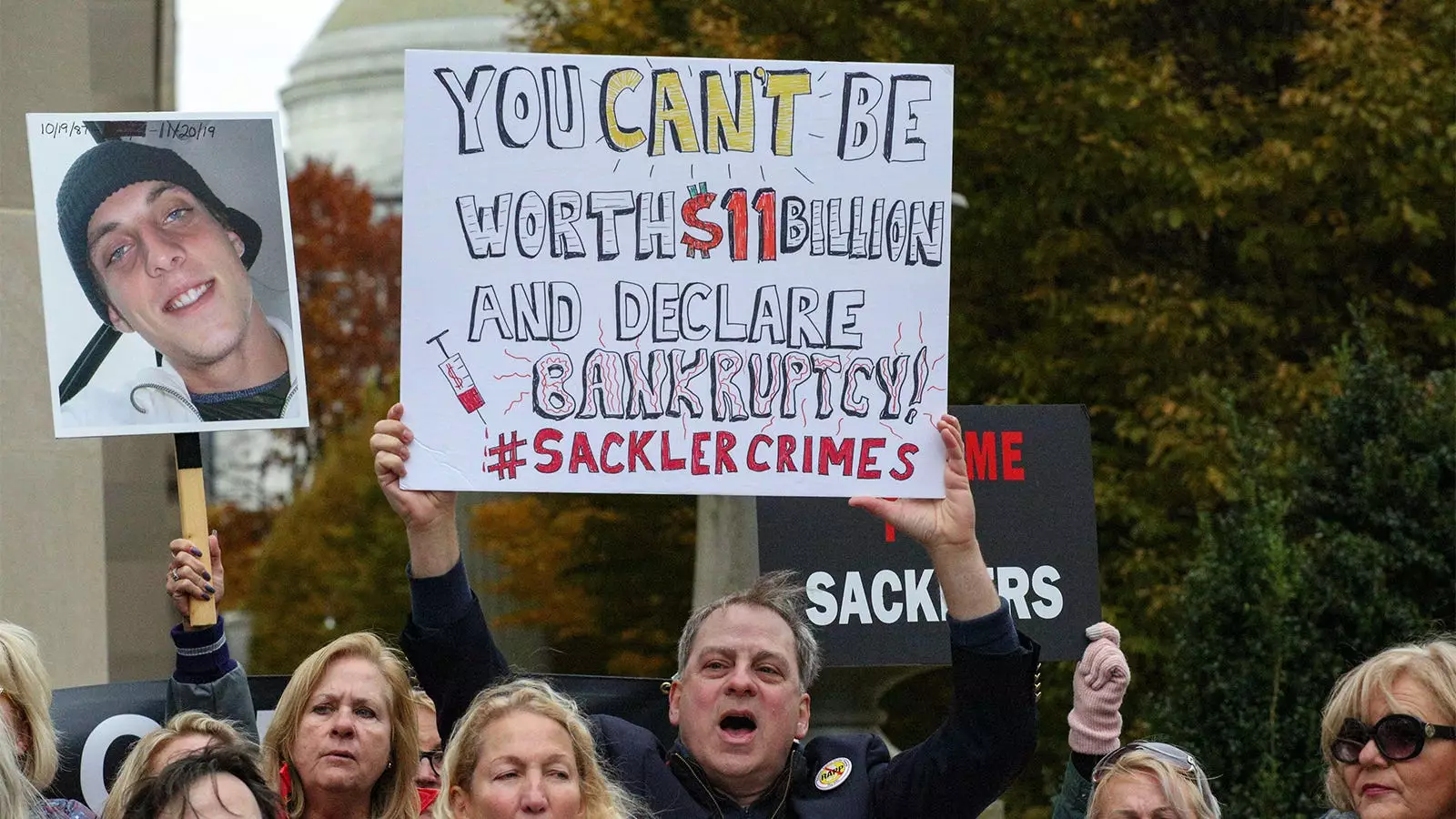The opioid epidemic in the United States has claimed the lives of over 500,000 individuals since 2000. At the heart of this crisis is Purdue Pharma, the manufacturer and marketer of the highly addictive opioid product, OxyContin. In March 2022, the Sackler family, who owned and ran Purdue, faced the testimonies of numerous individuals who have been personally affected by opioid use disorder and the loss of loved ones to overdose. While the legal battles surrounding Purdue’s bankruptcy and the Sacklers’ accountability continue, it is essential to address the urgent need for relief for the victims.
Purdue’s Alleged Wrongdoings and the Bankruptcy Proceedings
Purdue Pharma is accused of using aggressive marketing tactics to promote OxyContin, despite being aware of its highly addictive nature. Thousands of individuals, governments, and entities have filed lawsuits against the company. In response, Purdue filed for bankruptcy in 2019, halting lawsuits until a restructuring plan could be approved to repay creditors. However, this plan included a provision known as a “non-consensual third-party release,” shielding individual members of the Sackler family from future civil lawsuits. The U.S. Court of Appeals for the Second Circuit approved this restructuring plan, but the issue of third-party immunity in bankruptcy has now reached the Supreme Court.
The Need for Bankruptcy Reform and Supreme Court Intervention
The lack of consistency among bankruptcy courts and federal circuit courts regarding non-consensual third-party releases highlights the urgent need for bankruptcy reform. Bankruptcy experts have called for Congress to address this issue and for the Supreme Court to establish uniformity in cases like Purdue’s. The proposed Nondebtor Release Prohibition Act of 2021 failed to make it out of committee in the 117th Congress, making the pending Supreme Court review crucial in resolving this aspect of bankruptcy law.
While no individual member of the Sackler family has faced criminal charges related to the marketing of OxyContin, Purdue Pharma has been found criminally liable. In October 2020, Purdue pleaded guilty to multiple felonies for conspiracy to defraud the U.S. and violate drug and cosmetic laws. Civil allegations against the company and specific Sackler family members were settled, resulting in the dissolution of Purdue and a $6 billion fine. It is worth noting that prior to these actions by the Department of Justice (DOJ), a significant number of claimants impacted by Purdue’s marketing practices supported the bankruptcy agreement and opposed the DOJ’s decision to seek Supreme Court review.
The current Purdue bankruptcy plan includes a fund of $700 million to $750 million to compensate individuals with personal injury claims against the company. However, the payout amounts range from $3,500 to $48,000, leaving many victims feeling underserved. The Sackler family, with an estimated collective worth of $11 billion, could voluntarily establish a fund to provide compensation to those harmed by Purdue’s marketing efforts. Unfortunately, their refusal to accept responsibility for the overdose deaths involving OxyContin and their desire to avoid future civil litigation impede this possibility. While $750 million may seem substantial, it pales in comparison to the immense wealth of the Sackler family and the lasting devastation caused by the opioid epidemic.
A Call for Action and Relief Today
It is essential to prioritize the well-being of the victims and the communities affected by the opioid epidemic. The Sackler family has the power to do the right thing and provide immediate relief by establishing a fund to compensate those injured by Purdue’s actions. However, the magnitude of suffering and harm caused by Purdue and the Sackler family may never be fully addressed through financial settlements alone. The pursuit of accountability and meaningful reform is necessary to prevent future crises and support those who have endured immeasurable loss.
Holding Purdue Pharma and the Sackler family accountable for their role in the opioid epidemic is crucial. The pending Supreme Court review of Purdue’s bankruptcy case presents an opportunity to establish consistency and clarity in bankruptcy law. Additionally, the Sacklers must recognize their responsibility and take action to provide relief for the victims. While financial compensation cannot undo the damage caused by the opioid crisis, it can offer some closure and support to those who have been waiting far too long for justice. The time for accountability and relief is now.

Leave a Reply